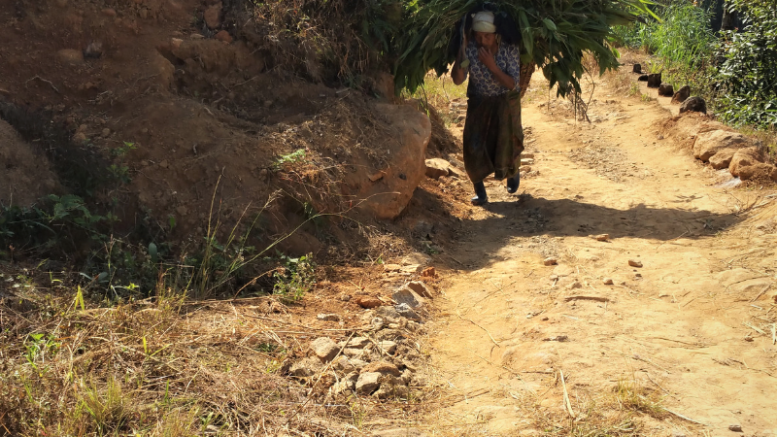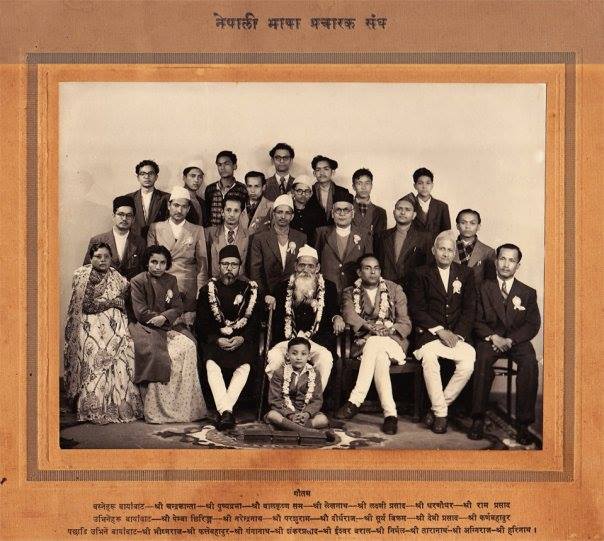On Women’s Day, our contributor Rinzing Ongmu Sherpa points out the inherent sexism in Nepali language proverbs
There is inherent sexism prevalent in our Nepali language which controls our everyday conversation, knowledge and behaviour, thereby strengthening patriarchy.
Scrolling through Instagram newsfeed, which only so often reminds us of being under constant surveillance, had something interesting to offer the other day. The items I had wish listed several months ago, now came up with a 50 per cent discount, and what was the occasion? Yes of course it was the International Women’s Day. To someone like myself who never believes in celebrating a particular occasion on just one particular day, it made me reflect upon the idea behind this Day. The successful surveillance through social media, was only kind enough because of this approaching Day, while all this while it had deprived me of something I had long longed to own. So eventually what was the point of only ‘celebrating’ and making someone feel special for a day? As it would sure not last the moment the sun would set.
The 8th of March each year comes with a campaign theme, with this year’s being #ChooseToChallenge. But is it just a campaign for a day? Does the theme live up to itself? Or is it merely to remind and rewind the history of emergence of International Women’s Day in 1911, where campaigning for women’s right to work, to vote, to be trained, to hold public offices and end discrimination had its inception in Austria, Denmark, Germany and Switzerland.
Well, how far have we come today from then, not just as women-but as humanity? Women’s Day will cease to have a meaning, if we only see it as a day exclusively to be ‘celebrated’ with a ‘theme’ behind and only confined amongst our women folk.

In the previous years, the theme #BalanceforBetter (2019) and #EachforEqual (2020), was not as successful. Instead, these two years witnessed a spike in violence against women and girls worldwide. COVID-19 had a major role to play. The term “stay home stay safe” ironically only applied to a few who could afford safety. The same home turned out to be a ‘chamber of torture’ for many, most of whom included women and girls. Being locked up alongside their husbands, in-laws and intimate partners, made them more prone and vulnerable to violence.
The US, UK France, Italy, China had a spike in women atrocities. In India, the National Commission for Women (NCW) received 23,722 complaints of crimes committed against women in 2020, the highest recorded in the last six years. The NCW also reported a monthly spike in cyber crimes, the victims mostly being women.
Given such a backdrop, the 2021 theme #ChooseToChallenge does make one reflect upon the instrumental and effective usage of the theme, beyond the day. There are innumerable forms of inequality, stereotypes and violence across genders. The first step towards choosing to raise such challenge is by ‘thinking globally but first acting locally.’ The second step is by choosing to challenge a realm that has most ‘stuck your chord’. It would be commendable to witness millions of people worldwide coming up with ‘that one thing’ that they wish or had wished to challenge.
As for me, ‘that one thing’ I would like to challenge would ironically be my mother tongue. Belonging to a Nepali society, where the lingua franca is Nepali, I have for a very long time resented the usage of many sexist proverbs, concepts and sayings, used on a daily basis. There is inherent sexism prevalent in the Nepali language which further controls our everyday conversation, knowledge and behaviour, which strengthens patriarchy.
The existence and its usage, institutionalises the role, position, identity and sexuality of women in our society.
Her Birth in our Society
“Dhilo hos, chhoro hos,” meaning even if a child arrives late in a family, it would be worth if a son arrives. “Naariko janma hareko karma” meaning a woman’s birth is a life lost or doomed, in a society such as ours. “Chhora paye sworga Jaane” the literal meaning of which is ‘the birth of a son in the family paves way to heaven”. These proverbs, while defaming and devaluing girls ever since her birth, also gives undue importance and privilege to the birth of a son. No matter how long it takes or what danger entails a woman, bearing a son is perceived as a woman’s lifetime purpose. These proverbs are a direct reflection of our society’s ideology surrounding gender, which may also shape the opinion of generations to come.
These proverbs also go on to shape the identity and role of a girl in our society, ever since she is born. The ‘popular’ Nepali proverb “Chhori cheli gaalko gund” meaning a daughter is the nest of shame; devalues women further. Such proverbs foster the idea that a home without a son is doomed. Thus, the girl learns to inculcate the same ideology about gender and about herself, thereby further becoming an agent of patriarchy.
Such ideas become ironical, as a woman who is once considered an economic liability to her parents, gets the status of Goddess Laxmi, who brings wealth into the family of her in-laws after being married off.
Her Sexuality is Controlled
Additional care needs to be taken when a daughter reaches adolescence, because chastity is considered crucial for her marriage and if let ‘loose’ she might bring ‘dishonour’ to the family.
Discourses around women’s modesty mostly revolve around their sexuality and bodily mannerism in the presence of men. Such ideas are further strengthened through the presence of Nepali proverbs, controlling women’s agency over herself and her body. A virgin woman is to be guarded first from herself and later from the outside world, as the ‘honour’ of the family rests upon the little young girl, who is now coming of age. A young enthusiastic girl full of life and opinion is firstly shunned saying “Pothi baaseko suhaudaina” the literal meaning of which is, the crowing of a hen is not proper’. Here the hen is made analogues to a woman who is loud and opinionated and who goes contrary to her gender expectations. Smiling too much, laughing aloud and sitting cross legged is also not expected of a ‘proper’ woman.
She is further trained to be more ‘ladylike’ “keti bhayera biralu ko chaal ma hinnu parcha” meaning a woman should tip toe like a cat in silence. A woman who does not live up to such societal ideals are often ridiculed by proverbs such as “dankeni chalyo saath gaon halyo”, meaning a woman who is ‘rash’ and not ‘ladylike’ in her mannerism are synonymous to being a ‘witch’ whose slightest movement brings destruction to several villages.
The concept of ‘honour’ only defining a woman in our society, from a very young age, disables their agency to make a univocal choice. This sexually objectifies and commodifies women. The proverb “Najar bhariki swaasni ra muthi bhariko dhaan” meaning while your wealth should be held tightly in your fist; your wife should be similarly controlled and kept within ones sight. This clearly states that the women’s sexuality is not to be trusted and should be controlled and kept within their husbands’ gaze. “Baari hernu dhanda bhaako, swaasni hernu gand bhaako” meaning one should look for a fertile land that would bring wealth and marry a wife with a goitre. This is another such proverb that views female sexuality as a threat, as it fosters the idea that a man should marry an ‘ugly’ wife who can never attract another man. Such proverbs reduce the role of women in a marriage as mere ‘sexual objects of desire’.
These proverbs suggest men’s ownership of women, highlighting the complex relationship between power and sexuality in a marriage.
Ironically, the idea of women’s ‘fidelity’ also encourages infidelity on the part of men.“Laage laag mohani nalaage gharmai chha budi” meaning if romance does not click elsewhere, there is never the less a wife waiting at home. “Marda ki dashoti joi” meaning a ‘masculine’ man is well capable of having ten wives. “Kaanchhi swaasniko paad pani mitho hunchha” meaning even the fart of the youngest wife is sweet. These proverbs encourage polygamy and infidelity among men. Male chauvinism is thus justified through sayings such as “keta haru testai huncha”, meaning ‘men will be men’, or ghar ko bau or ghar ko lognay manchay meaning the father of the house or ‘man of the house’, which entitles them authority over the other.
She is ‘Domesticated’
Proverbs have also been instrumental in perpetuating the idea of ‘domesticating’ women. “Chhora paye sansar ujayalo, chhori bhaye bhanchha ujyalo” meaning the birth of a son brightens one’s life, whereas the birth of a girl only brightens the kitchen. This throws light on the construction of gender roles, where women are confined within the four walls of the domestic and her professional and financial realm are overlooked, whereas men are considered the ‘bread winners’.
She is Married, she is a Parai Dhan
Proverbs have penetrated the institution of marriage. In a Nepali society, the unconditional respect to be given to in-laws is, inculcated in a woman from a very tender age. “Cheli paali kutumb laai, kukur paali chituwaa laai” meaning a daughter is raised for her in-laws and a dog for the leopard. The proverb identifies a woman as the sole ‘property’ of her in-laws. Her identity and a sense of self, before marriage and outside of it, cease to exist in the eyes of patriarchy.
After a woman gives birth, the responsibility of the child, mostly rests on her. “Baabu mare aadhaa tuhuro aamaa mare singai” meaning a person without a father becomes half-orphan; and without a mother is fully orphaned. Such ideology subjugates women subconsciously and forces them into child rearing.
“Srimati bhaneko paitalako dhulo ho”, meaning the wife is synonymous to being the dust of her husband’s feet. The proverb states that a man in authority can treat his wife in any way he pleases to, thereby portraying her ‘insignificance’ and ‘dispensability’. “Logne swasni ko jhagada paral ko aago” meaning a fight between a husband and a wife settles down as quickly as hay set on fire. This proverb discourages an outsider from intervening between a fight between a husband and a wife. It indirectly encourages violence against women, by making them vulnerable within the domestic.
Nepali proverbs have been the tools for safeguarding and strengthening patriarchy and sexism over the years. The root cause behind its perpetuity is that our people have accepted it as a part of our cultural force, which goes unquestioned and unchallenged. However, if we choose to make ourselves understand that the ‘choice’ to ‘challenge’ such ‘ills’ rests only upon us. Either we choose to succumb to it or we recognize it and #ChooseToChallenge.
Writes: Rinzing Ongmu Sherpa is a Doctoral Candidate at Jawaharlal Nehru University, New Delhi. She is a resident of Pelling, West Sikkim and can be reached at rinzing.ongmu93@gmail.com.






Be the first to comment on "This Women’s Day I am not Silent, I Choose To Challenge"